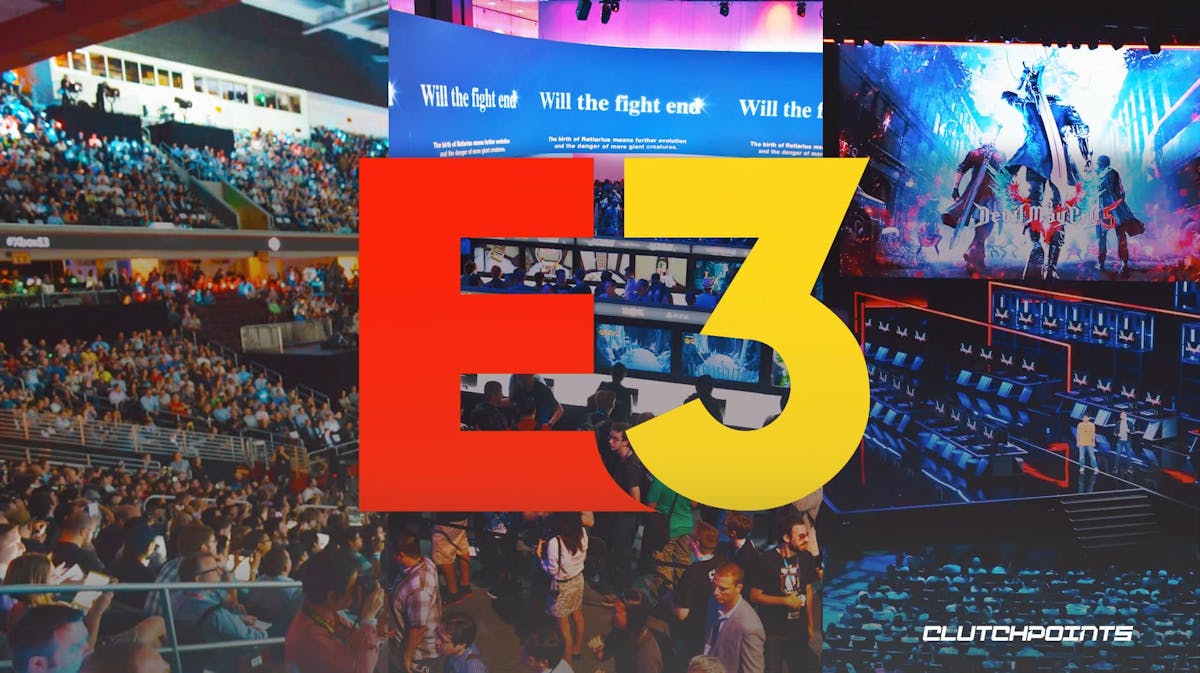The cancellation of E3 2023 shook the gaming world last week. Now, the general opinion appears to be that this is the final nail in the coffin for the once-great event.
It's done more than that, if we're being honest. For many, it's called into question the inherent value of E3 and whether the industry can still depend on such a show. Indeed, the industry appears to have been asking itself this somewhat existential question for at least a decade. With the potential demise of E3 on the table, we may finally have to get to the heart of the matter and evaluate whether it's sustainable going forward. So, what went wrong with E3, and is there any hope for a resurgence?
The Downfall of E3
E3 2023 was intended to be the event's return after being postponed since 2019 due to the COVID-19 pandemic. ReedPop, the company behind PAX, New York Comic Con, and Star Wars Celebration, was tapped to develop a new hybrid event that would include both in-person and online components. The withdrawal of big players such as Nintendo, Microsoft, and Ubisoft, on the other hand, dealt a substantial blow to the show's prospects.
Several factors led to the decline in support for the event. Because of the pandemic's disruption of production schedules, publishers often found it difficult to commit to showing games at the event. Economic headwinds also made it difficult for businesses to allocate the large budgets required to exhibit at E3. Furthermore, the industry was still trying to figure out how to balance in-person events with the internet marketing channels that had dominated during the pandemic.
E3's now-tainted name may have also contributed to its demise. Many industry participants were dissatisfied with the ESA's pre-pandemic attempts to transition the show to a public event, combined with a disastrous data leak. Companies such as Sony and Microsoft started to distance themselves from E3 and look for alternative venues.
And if we're being honest? Though this wasn't always the case, many found the format of E3 began to feel bloated, outdated and wasteful. E3 was struggling to keep up with a quickly changing gaming PR landscape. The costs of attending the event, both financial and environmental, took a major toll on organizers and those heading to Los Angeles for the show.
Is an E3 Resurgence Possible?
Despite the fond memories many industry veterans have of E3, it's obvious that, for many, the event had outlived its usefulness in a rapidly changing gaming landscape. The cancellation of E3 2023 could provide a chance for the industry to reconsider the value of such large-scale events and find new ways to generate excitement for forthcoming games.
We're living in a world where scattered gaming showcases at random times battle to keep game hype alive. That means the cancellation of E3 compels the industry to consider alternative methods of engaging audiences and promoting their products. The growing emphasis on digital marketing channels, influencer alliances, and direct-to-consumer communication has the potential to render E3 obsolete.
Finally, the cancellation of E3 2023 could indicate that the gaming industry has outgrown the need for a singular, massive event to create hype and excitement. As companies experiment with new methods to engage their audiences and promote their products, one event may not be enough. We've seen that audiences respond to a more decentralized, digital-first approach. While it isn't everyone's cup of tea, it makes sense — and many fans like having their news spoon-fed to them in this way.
Ideas for a Revitalized E3
The gaming industry is at a crossroads. With that in mind, the cancellation of E3 2023 should serve as a wake-up call for businesses. It's time for many to rethink their marketing and advertising strategies.
One possible solution is for businesses to take a more targeted strategy to game promotion. Publishers can create tailored experiences that resonate with their target audience by focusing on particular communities, platforms, and interests. For example, an indie game developer could host a digital showcase geared particularly toward indie game fans, providing unique insights and exclusive content that might not be as effective at a larger event like E3.
Another interesting avenue to investigate is the growing role of influencers and content producers in the gaming community. Publishers can tap into a large and engaged audience by partnering with famous streamers and YouTubers. Collaborative events, such as live streams, charity fundraisers, or content creator showcases, can add a more personal flavor to game marketing, too.
Furthermore, the gaming industry could take a cue from other entertainment industries and implement additional strategies. These could include events surrounding staggered releases, more than a simple video of what's to come or an announcement. That way, companies could continue to keep interest and excitement around their products high. One of the most important things that E3 offered was feelings of anticipation and urgency that centered around June. Having a summer show to attend was the highlight of several attendees' year.
The End of E3?
The end of E3 as we know it marks a watershed moment in gaming. Companies must adapt to the changing environment by investigating alternative methods of promotion and interaction. By adopting a more targeted, digital-focused, and environmentally conscious strategy, the industry can flourish in a post-E3 world. There can still be memorable experiences that the entire industry can enjoy. The conclusion of E3 doesn't have to mean the death of the blowout event for gaming. But it will likely signal the start of a new era for gaming showcases. This one will emphasize innovation, inclusivity, and sustainability. It may look different going forward. But as long as E3 retains the heart of what once was, audiences will likely be satisfied with the changes.




